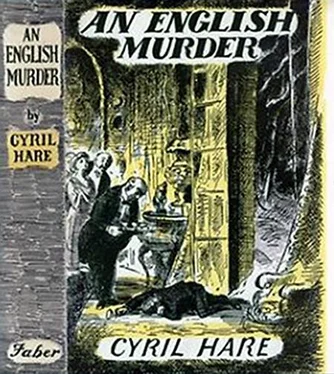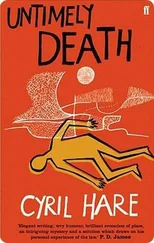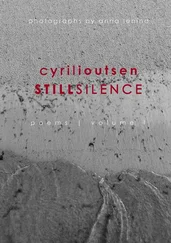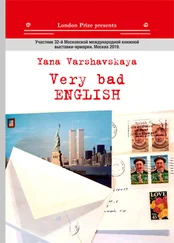"Sorry to disturb you, Mr. Briggs," Rogers said, "but have you seen my bloke anywhere about?"
"Sir Julius has not been here, so far as I am aware, Mr. Rogers. He's about the only member of the house-party who has not."
"Funny. He must have given me the slip somehow. I could have sworn I saw him making off in this direction. In a big house like this it's a job to keep an eye on people, don't you find, Mr. Briggs?"
"Keeping an eye on people is not part of my duty, I am glad to say, Mr. Rogers. I have plenty to do as it is."
Briggs reached down a decanter from a shelf.
"Well," said the detective philosophically, "I dare say it will do him no harm to be by himself for a little. That is a nice- looking bottle of port you have there, Mr. Briggs."
"This," said Briggs crushingly, "is the last bottle but one of his lordship's 1878, if you want to know, Mr. Rogers."
"You don't say, Mr. Briggs! Pre-phylloxera!"
Briggs looked at him with a sudden air of respect. "You know something about port, then, Mr. Rogers?" he asked.
"A little, Mr. Briggs. Just a little."
"In that case, Mr. Rogers, perhaps you would be good enough to assist me with the decanting."
"I shall be proud to do so, Mr. Briggs," said the detective. Then, as Briggs produced a corkscrew he said anxiously, "Do you think the cork is altogether safe? I was wondering whether with a wine of this age it would be wiser to take the neck off the bottle?"
"Quite unnecessary, Mr. Rogers. His late lordship had the bin recorked as recently as 1913, so I think we should have no difficulty."
Briggs was right. The cork was drawn without incident and the precious fluid was decanted with a steady hand while Rogers held a candle beneath the neck of the bottle to detect the presence of any floating impurity.
"There!" said the butler, holding up the bottle when the rite had been accomplished. "A beautiful crust, and not a teaspoonful of dregs left at the bottom. I am very much obliged to you, Mr. Rogers."
The two men looked in admiration at the decanter.
"His lordship will take a small glass with a biscuit," murmured Briggs. "The doctor wouldn't allow him that, if he knew. I doubt whether the party in the dining-room are good for half a bottle between them. It's wasted on the ladies, of course.... I think if you were to join me here after dinner, Mr. Rogers, there should be a couple of glasses apiece."
"Well, Mr. Briggs," said Rogers judicially, "it would be interesting to see what its condition is after all this time."
And on this note the two connoisseurs parted.
Chapter VII
Christmas Dinner
At ten minutes to eight Briggs carried a tray bearing a decanter of sherry and glasses into the drawing-room. At eight o'clock precisely he sounded the great Chinese gong in the hall. It was an entirely unnecessary piece of ritual, for he had already seen for himself that all five guests were present; but as a piece of ritual he enjoyed it. The deep brazen notes pulsated through the great, half-empty house, penetrating into dilapidated spare rooms where no guests had been since the First World War, rousing echoes in servants' quarters where no servant was ever likely to be seen again. Oddly enough, the one person who seemed to share Briggs's pleasure in the noise was Sir Julius, who was once more momentarily in the grip of the spell of the past.
"Wonderful tone, that old gong," he observed to Lady Camilla. "You can hear it right the other side of the park when the windows are open, I remember. There's nothing like Chinese work for that sort of thing. I remember my father telling me it came from the loot of the Winter Palace at Pekin. Great days! Great days!" He sipped his sherry appreciatively.
"Surely, Sir Julius, you don't suggest that the sack of the Winter Palace was a creditable episode in our history?" broke in Mrs. Carstairs.
"My dear lady, I am merely stating the fact that the gong came from the Winter Palace at Pekin," said Sir Julius, rather irritably.
"Pardon," said Dr. Bottwink rather diffidently to Camilla, while an acrid discussion proceeded on the events surrounding the Boxer revolt of 1900, "but from whatever quarter the instrument originated, am I not correct in thinking that it signifies dinner-time?"
"Oh, yes," Camilla assured him. "It signifies that all right."
"Then why do we not obey the summons and make our way to the dining-room?"
"That would never do! Briggs hasn't announced dinner yet. He always allows three minutes."
"I comprehend. Inasmuch as the language of a gong is liable to be ambiguous, being Chinese, it is necessary that it should be reinforced by an announcement made in plain English."
"Plain English, Dr. Bottwink?" Camilla could not resist saying. It was odd, she reflected, but of all the people present this stranger, with his odd pedantic utterances, was the only one to whom she could talk with any degree of ease. Julius was a pompous egoist, Mrs. Carstairs was a plain bore, and Robert—she looked across the room to where he stood. He had drunk three glasses of sherry rapidly without exchanging a word with anyone and was now ostentatiously disregarding her.
"Plain English," Dr. Bottwink repeated. "I know what you mean, Lady Camilla. It is a language, you would say, of which I am not entitled to speak. The language of Shakespeare and Johnson, that I have mastered perhaps. But what you call plain English—that series of grunts and variations on a single indeterminate vowel by which nine-tenths of the inhabitants of this island choose to communicate——"
"Dinner is served!" Briggs's solemn announcement saved the historian from the trouble of finding an end to a sentence which was rapidly getting out of hand.
"We'll go in, shall we?" said Robert, speaking for the first time.
The dinner table was a small island in the middle of the vast room, and the room was as cold as Briggs had predicted. The ill-assorted little company sat down to their meal in a subdued mood. Apart from taking the head of the table, Robert showed no disposition to do his duty as a host. He ate what was put before him, drank copiously and said nothing. His obvious boredom at the entire proceedings set the tone for what promised to be a remarkably cheerless Christmas dinner. Little by little, however, the influence of food and drink began to have its effect. Beginning with Mrs. Carstairs, whose loquacity nothing could curb for long, the guests contrived to keep going a sporadic conversation. None the less, there was an atmosphere of constraint which it was difficult to shake off. The long gaps between the little outbursts of talk were filled with a chill sense of foreboding, not only to be accounted for by the physical temperature of the dining room.
It was Dr. Bottwink in the end who saved the situation, and caused the meal to close in something nearer animation than had at first seemed possible. Evidently remembering Camilla's advice, he contrived to ask Sir Julius a question about fly-fishing. The statesman looked at him with undisguised surprise. The funny little foreigner, his expression said, might almost be human.
"Are you a fisherman?" he asked incredulously.
"In my youth I was quite fond of the sport," said Dr. Bottwink mildly. "There are some quite passable trout streams in my country—not," he added deprecatingly, "to be compared with your Markshire rivers, of course, but quite good in their way."
"Interesting," said Sir Julius, dismissing all the waters of central Europe with a shrug of his shoulders. "I remember——"
Camilla sent a glance of gratitude towards the historian. Fishing, she knew, was a subject on which Sir Julius could be thoroughly boring, but at least it could be guaranteed to keep the oppressive silence at bay for several minutes at a time. She was not disappointed. Julius launched easily into a disquisition on the technicalities, difficulties and virtues of the sport, particularly from the point of view of the harassed statesman, seeking relaxation from his toils. He compared himself to the late Lord Grey, not wholly to that statesman's advantage, and illustrated his theme with a few personal experiences, as fascinating to his hearers as other people's fishing stories invariably are. While he was leaving his audience to reflect upon the singularity of one of these, Dr. Bottwink, who seemed to have been following the discourse with rapt attention, observed, "Fishing for trout closely resembles the conduct of a love affair, does it not?"
Читать дальше












